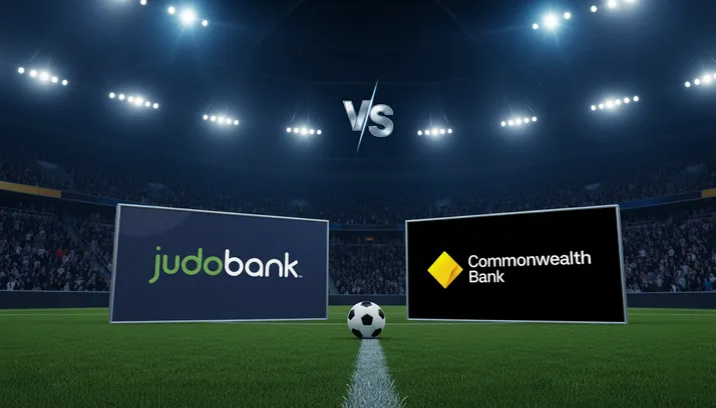How to pick a term deposit
When choosing a term deposit, start by comparing interest rates and terms. Higher rates often come with longer lock-in periods, so decide how long you’re comfortable having your money tucked away.
Next, check the conditions for early withdrawal. Most banks require advance notice – often 31 days – and may reduce your interest if you access your funds before maturity.
It’s also worth considering when interest is paid. Some term deposits pay monthly, quarterly, or annually, while others only pay at maturity. Choose an option that suits your cash flow needs.
Finally, make sure the institution is covered by the government’s Financial Claims Scheme, which protects deposits up to $250,000 per customer, per bank.
If you need flexibility, you may want to explore high-interest savings accounts.
Term deposits vs savings accounts
If you are considering a term deposit or a savings account, it is useful to compare the two side by side. This is because each account type is better suited to certain situations.
|
Term deposits |
Savings Accounts |
|
|
Access your money at any time? |
✗ |
✔ |
|
Fixed rate of interest? |
✔ |
✗ |
|
Guaranteed rate of return? |
✔ |
✗ |
|
Make additional deposits? |
✗ |
✔ |
|
Safe (covered by FCS)? |
✔ |
✔ |
|
Typically requires a linked transaction account? |
✗ |
Sometimes |
|
Typically requires minimum starting deposit requirements? |
✔ |
Sometimes |
How to compare term deposits
When you compare term deposits, you’ll want to keep a couple of factors in mind such as:
- Interest rates: The higher the rate the more interest you’ll earn.
- Deposit terms: The length of time your money will be invested for – ranging from 1 month to 5 years.
- Minimum deposit amounts: How much money you’ll need to invest up front.
While most term deposits are fairly similar, some have minimum and maximum deposit amounts. For example, some term deposits require you to have a minimum $1,000 deposit, whereas for others you need to have at least $25,000.
Use Mozo’s term deposit calculator to find out how much interest you could earn on any given rate and term.
FAQs
Are term deposits safe in Australia?
All term deposits listed on Mozo’s website are covered under the Australian government’s Financial Claims Scheme, as they’re provided by Authorised Deposit-taking Institutions (ADIs).
This means the government will guarantee your deposit worth up to $250,000 per person, per deposit product, if the bank goes bankrupt or can’t pay you back.
Can I withdraw money from a term deposit early?
Generally, yes, but you'll usually face an interest rate reduction penalty. Most providers require you to give notice (e.g., 31 days). The penalty often depends on how much of the term has elapsed. For example, withdrawing early might mean you forfeit 20% to 80% of the interest earned. It's designed for funds you're confident you won't need during the term. Check the PDS for specific details.
Do term deposits have any fees or charges?
Most term deposits don’t charge ongoing fees, but you may face a penalty or reduced interest if you withdraw your money before the term ends.
What happens if I break a term deposit?
If you need access to your funds before the maturity date of your term deposit, it is possible to break the account. Firstly, you will need to give the bank 31 days notice and secondly you will likely be required to pay an early withdrawal fee. For more detailed information, see our term deposit early termination guide.
Are there any restrictions to opening a term deposit?
You will generally need to be a resident for tax purposes to be able to open a term deposit with an Australian bank. Banks will generally also require you to be at least 18 years old to open a term deposit. If you are under 18, it might be possible to open a joint account with a parent or guardian.
How is term deposit interest calculated and paid?
Interest is usually calculated daily on your principal amount and paid at the frequency stated in the terms: typically at maturity (end of term), annually, semi-annually, quarterly, or monthly. Monthly interest payments often come with a slightly lower interest rate compared to interest paid at maturity. Check the 'interest frequency' section in our tables and the provider's Product Disclosure Statement (PDS).
Do I pay tax on the interest earned from my term deposit?
Yes, the interest earned on a term deposit is considered income and you’ll need to include this on your tax return for the financial year in which it was paid. It is a good idea to speak with your accountant or financial advisor about your specific tax situation, especially if you are investing a large amount of money.
What happens when my term deposit matures?
Your provider will typically contact you before maturity. You usually have a grace period (e.g., 7-14 days) to decide whether to:
- Withdraw the principal and interest.
- Reinvest ('rollover') for another term (often at the prevailing rate, which might be different).
- Add more funds and reinvest. If you don't provide instructions, it may automatically rollover into a similar term at the current standard rate, so it's important to review your options.
Is it worth putting money in a term deposit?
Term deposits can be worth considering if you're looking for a low-risk, guaranteed return on your savings. They can be good if you have a lump of cash you don't need to access for a while and want to lock in a good rate before rates fall. However, this is a double edged sword as you may miss out on rising interest rates too.
Popular term deposit topics and how-to's
Our guides will help you to understand the ins and outs of term deposits See all
Latest term deposit news
Get the latest on market trends, interest rates, and term deposit product news from Mozo's expert writers. See all
-

TERM DEPOSITS
Judo Bank: the bank you’ve never heard of that’s hitting term deposits out of the park
-

TERM DEPOSITS
Judo Bank vs CommBank Term Deposits
-

TERM DEPOSITS
Term deposits: Why timing your move before the November RBA decision could pay off
-

TERM DEPOSITS
Lock in business term deposit rates before potential RBA cuts
-
.png)
TERM DEPOSITS
Why term deposits aren’t just for boomers
-

TERM DEPOSITS
Judo Bank vs NAB Term Deposits

.png)



